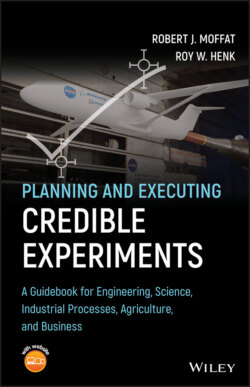Читать книгу Planning and Executing Credible Experiments - Robert J. Moffat - Страница 20
1.6 In Defense of Being a Generalist
ОглавлениеThe last point we wish to make before sending you off into this body of work has to do with the level of expertise one needs to run good experiments.
We think it is more important for an experimentalist to have a working knowledge of many areas than to be a specialist in any one. The lab is a real place; Mother Nature never forgets to apply her own laws. If you are unaware of the Coanda effect, you will wonder why the water runs under the counter instead of falling off the edge. If you haven't heard of Joule–Thomson cooling, you will have a tough time figuring out why you get frost on the valve of a CO2 system.
Accordingly, if you aren't aware of the limitations of statistics, then using a statistical software package may lead you to indefensible conclusions.
It is not necessary to be the world's top authority on any of the mechanisms you encounter in the lab. You simply have to know enough to spot anomalies, to recognize that something unexpected or interesting is happening, and to know where to go for detailed help.
As an experimentalist, always beware of assumptions and presuppositions. See Figure 1.2 and “The Bundt Cake Story” (Panel 1.1). Step forward and predict. Then be ready and humble to course correct.
The lab is a great place for an observant generalist. The things that happen in the lab are real and reflect real phenomena. When something unexpected happens in the lab, if you are alert, you may learn something! As Pasteur said, “Chance favors only the prepared mind” (Pasteur 1854).
Let’s now launch toward planning and executing credible experiments.
Figure 1.2 The Bundt cake as delivered. A high heat‐transfer coefficient lifts the fluid batter like a hot air balloon. But which stagnation point is up, and which is down?
